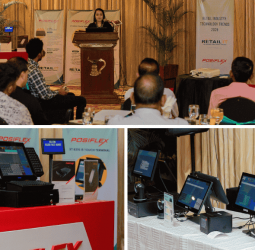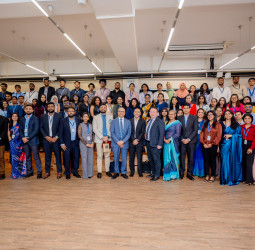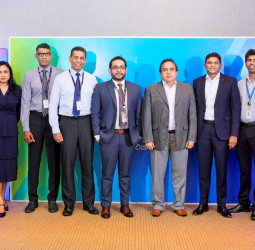- AI and the future of Sri Lanka
Artificial Intelligence (AI) is no longer a futuristic concept; it is a present-day force actively reshaping global industries, and Sri Lanka is no exception.
From AI-driven chatbots to automated factories, the technology is steadily transforming how work is done, promising unprecedented efficiency while simultaneously posing profound questions about the future of employment.
The global stakes are high. According to the International Monetary Fund (IMF), AI is expected to impact around 60% of occupations in developed economies. For half of those, it will be a productivity boon. For the other half, AI applications threaten to perform key functions, diminishing the need for human labour and leading to lower pay, reduced hiring, or, in the worst cases, elimination of jobs.
However, the IMF also suggests that in emerging markets and low-income countries, AI exposure is predicted to be 40% and 26%, respectively, and indicates that emerging markets and underdeveloped economies would face less immediate disruptions from AI.
While the IMF suggests emerging markets like Sri Lanka will face less immediate disruption, it issues a stark warning: many of these nations lack the infrastructure and qualified workforce to reap the benefits of AI, raising the danger that the technology will simply exacerbate global inequality.
Skills vs. infrastructure
How prepared is Sri Lanka to navigate this new era? The answer is a paradox of human potential and structural hurdles.
“We don’t really lack the skills,” stated former Chairman of the National AI Advisory Committee and National Committee to Formulate an AI Strategy for Sri Lanka Dr. Romesh Ranawana.
He noted that Sri Lankan universities were training the necessary talent and the tools themselves were becoming easier to use. “Skills-wise, I don’t think there is a gap. I think there’s actually more skilled talent than the demand,” he said.
The real bottleneck, according to Dr. Ranawana, is infrastructure. “We still have access to all cloud providers, such as Google, which we can use. But of course, the problem is that we have to pay them in dollars and there is a limitation there. Infrastructure, in terms of servers and AI, etc. is holding us back to a certain extent,” he added.
This infrastructural gap is a critical barrier to competing on a global scale. While Dr. Ranawana expressed confidence that Sri Lanka could compete with other countries, he stated that it required a nationwide effort.
“It has to be a nationwide effort, which is why we are developing an AI strategy. Ad hoc efforts are not going to be enough,” he explained.
However, Arutha Co-Founder and Director of Civic Education Rehana Thowfeek injected a note of geopolitical realism. When asked if Sri Lanka could compete, she expressed scepticism about the country’s capacity to challenge global giants.
“From what I can observe of AI, it is becoming another space where geopolitics is also coming into play,” Thowfeek said. She highlighted the massive lead already established by other nations, suggesting the gap may be too large to close.
“China has made so much progress in terms of AI. I’m uncertain as to whether we have the potential or the capacity even to compete with these countries, because they are so far ahead. In terms of the adoption and rolling out of AI technology, we are nowhere close to that,” she added.
Advocata Institute Chief Executive Officer Dhananath Fernando offered a more market-driven perspective, arguing that the global AI race was not about direct competition, but about finding a unique niche.
He likened the situation to tourism, where countries naturally specialised. “When one country attracts a certain segment, another country will automatically gear up to specialise in a different segment. Likewise, there will be differentiation in the market,” he added. For him, this adaptation is an evolutionary process.
The literacy imperative: A nationwide awareness gap
While Dr. Ranawana expressed confidence in the high-level technical skills emerging from Sri Lanka’s universities, he pointed to a different, more widespread challenge: a gap in AI awareness and literacy across the general workforce.
This, he identified, was the country’s most significant vulnerability in its quest to become an AI hub. “This is where we are somewhat lacking,” he warned. “AI awareness and literacy are going to become core skills, just like computer literacy is now. It’s very important to be teaching AI,” he noted.
The problem is compounded by an education system that is not yet equipped for this new reality. Asked if Sri Lanka’s current system was ready for an AI-driven future, Fernando was blunt in his response, saying: “We are definitely not.”
Dr. Ranawana stressed that this transformation must begin at the foundational level. “Countries like the UAE and Singapore teach AI almost from Grade 2 onwards. If we really want a similar change, we also have to have an AI transformation,” he explained.
The human element: Augmentation, not replacement
For the average worker, the primary fear is: ‘Will I lose my job to a machine?’ Dr. Ranawana believes the narrative of mass replacement is largely overblown. “There will be certain jobs which will be replaced, but a bulk of the jobs won’t be,” he stressed.
He compared the current moment to the dawn of the computing age. “There were people who were unable to keep their jobs when computers came, so they had to upskill. Going forward as well, most jobs are going to require the use of AI.”
According to Dr. Ranawana, the threat isn’t AI itself but a failure to adapt to it. “I don’t think people are going to be replaced [by AI], but they will be replaced by those who know how to use AI better.”
Fernando shared a similar historical perspective, noting: “Many decades ago, when factories were introduced with technology and machinery, people were worried that they would lose jobs,” he said. “A similar thing has happened to some white-collar jobs at present. In that context, it can have an impact, but I don’t think we will be left out. We will catch up.”



 Natasha
Natasha





